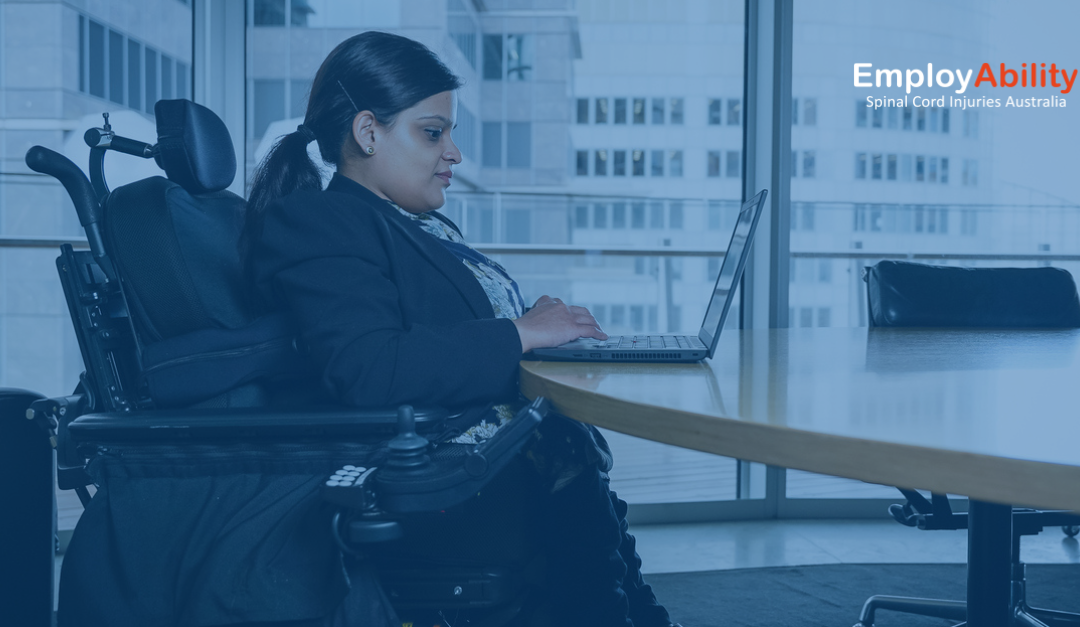Navigating the Challenges: Understanding the Pitfalls of Recruitment for People with Physical Disabilities.
Finding a job can be challenging for anyone, but for people with physical disabilities, the recruitment process often presents unique obstacles. Understanding these pitfalls can help you better navigate the path to employment and feel more empowered throughout your job search.
Limited Accessibility in Job Postings
One of the first challenges many people with physical disabilities face is finding job postings that are accessible and inclusive. Unfortunately, not all companies provide clear information about their commitment to accessibility or detailed accommodations for people with physical disabilities. This can make it difficult to identify which employers are truly inclusive.
Tip: EmployAbility advertises roles on our website regularly. We also post on roles on our Facebook group Physical Disability Jobs and Opportunities Australia.
Physical Barriers in the Workplace
Even if a company is open to hiring people with physical disabilities, the workplace itself may not be fully accessible. This includes issues like inadequate wheelchair access, inaccessible restrooms, or poorly designed workstations.
Tip: If you’re invited to an interview, consider asking for a tour of the workplace. This can help you assess whether the environment is suited to your needs. If you notice potential issues, discuss them with your prospective employer and see if they’re willing to make necessary adjustments. EmployAbility will work with the employer by completely a D.I.S.C (Disability Inclusion Status Check) through our Building Employer Confidence (BEC) program.
Bias in the Hiring Process
Unconscious bias can be a significant barrier. Even with the best intentions, some hiring managers may have preconceived notions about what someone with a physical disability can or cannot do. This can lead to unfair assessments of your abilities or potential.
Tip: During interviews, focus on your strengths and achievements. Be prepared to discuss how you’ve successfully managed challenges in the past, whether related to your disability or not. This can help counteract any bias by showing that you’re capable and adaptable. Remember, you are under no obligation to discuss your disability. Review our Interview Guide for further tips.
Lack of Reasonable Accommodations
In some cases, employers may not fully understand their obligations to provide reasonable accommodations under the law. This could lead to workplaces that aren’t fully equipped to support employees with physical disabilities, either because of a lack of understanding or reluctance to invest in necessary changes.
Tip: Know your rights, research the Disability Discrimination Act 1992. EmployAbility can work with you and your employer to ensure these changes are made; the Australian government can also help cover costs via Job Access. Be clear about what you need to succeed in the role and don’t hesitate to advocate for yourself.
Lack of Supportive Workplace Culture
Finding a job is just the first step. Thriving in the workplace often depends on having a supportive culture. Unfortunately, not all workplaces are inclusive or understanding of the unique challenges faced by employees with physical disabilities.
Tip: During the interview process, try to get a sense of the company culture. You can do this by asking questions about how they support employees with disabilities or by seeking out current or former employees who can share their experiences. Research through websites and social media pages are also great ways to understand the company culture. A company that genuinely values diversity will be happy to discuss how they foster an inclusive environment.
Inadequate Training for Hiring Managers
Sometimes, the pitfalls stem from a lack of training among hiring managers. Without proper training, they may not know how to effectively assess the qualifications of candidates with physical disabilities or how to discuss accommodations during the hiring process.
Tip: If you feel that a hiring manager isn’t familiar with the process of accommodating employees with disabilities, offer to discuss your needs openly. This can be a good opportunity to educate them and ensure that they understand how best to support you. The BEC team will again be able to help. We offer in-house training workshops and online modules for employers.
Final Thoughts: Empowering Yourself in the Job Search
While these pitfalls can be discouraging, remember that there are many companies committed to creating inclusive environments. By being proactive and advocating for your needs, you can find a workplace where you can thrive.
Stay informed about your rights, seek out supportive employers, and don’t be afraid to ask for what you need to succeed. With the right approach, you can navigate the recruitment process and find a job that’s not just a pay check but a fulfilling and rewarding experience.
Whether you’re just starting your job search or looking to make a career change, remember that you have the power to shape your journey.
Surround yourself with supportive networks, keep pushing forward, and believe in your ability to succeed.
We do.

